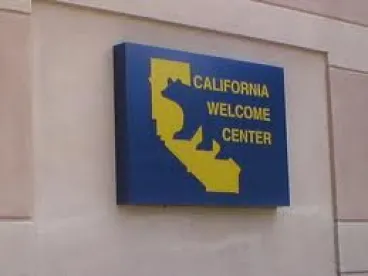California's temporary repeal of its affiliate nexus statute requiring out-of-state retailers to collect and remit use tax based on the presence of in-state affiliates will end effective September 15.
Assuming the California State Legislature takes no further action, the temporarily repealed California affiliate nexus statute, commonly referred to as an "Amazon" or "click-through nexus" law, will go into effect on September 15, 2012. The law requires certain out-of-state retailers to collect use tax on sales to California customers, based on their relationship with California affiliates. A retailer that fails to collect and remit use tax when required to do so may be liable for the tax plus penalties and interest. The fast-approaching effective date of the new rule was triggered under California tax law when no controlling federal legislation was enacted by July 31. As such, now is the time for retailers to review their compliance and reporting position.
Background
California imposes a sales and use tax on retailers that is measured by the gross receipts from the sale of tangible personal property sold at retail within California or on the storage, use, or consumption within the state of tangible personal property purchased from any retailer. See Cal. Rev. & Tax. Code §§ 6051, 6201. Section 6203(a) of the California Revenue and Taxation Code provides that only retailers "engaged in business" in California (i.e., those with substantial nexus) are required to collect and remit sales or use taxes from California-resident purchasers. Section 6203 was amended by Assembly Bill ABX1 28 (ABX1 28), effective June 28, 2011, to expand California's use tax collection requirements to out-of-state Internet retailers based on their connection with California affiliates and certain related entities.
On September 23, 2011, Assembly Bill 155 (AB 155) was signed into law, temporarily repealing the amendment only recently enacted by ABX1 28. Section 6(b) of AB 155 provided that if federal law was enacted on or before July 31, 2012, authorizing states to require out-of-state vendors to collect use tax, then the repealed affiliate nexus statute would be reenacted on January 1, 2013. However, if no such federal law was enacted on or before July 31, then the repealed affiliate nexus statute would be reenacted on September 15, 2012.
As discussed below, although federal legislation authorizing states to require remote vendors to collect use tax has been proposed, to date no such legislation has been enacted. On August 15, 2012, the California Department of Finance certified to Governor Jerry Brown that no federal legislation had been enacted by the July 31 deadline. As such, the affiliate nexus statute will be operative on September 15, and the California State Board of Equalization (BOE) is beginning to contact out-of-state retailers. See Cal. BOE News Release 86-12-H, New Law Requires Out-of-State Retailers to Collect Use Tax (Aug. 30, 2012).
Implications for Out-of-State Retailers
Under the new law, a retailer will be considered engaged in business in California and required to register with the BOE to collect and remit use tax if both of the following occur:
1. The retailer has an agreement with a person in California to directly or indirectly refer potential purchasers of tangible personal property to the retailer for a commission or other consideration, whether by an Internet-based link, website, or otherwise.
2. The retailer, within the preceding 12 months, has (a) total cumulative sales in excess of $10,000 of tangible personal property to customers in California that were referred to the retailer under the terms of its affiliate agreements and (b) total cumulative sales in excess of $1 million of tangible personal property to customers in California.
See Cal. Rev. & Tax Code § 6203(c)(5)(A); Cal. Code Regs. tit. 18, § 1684(c)(3).
An agreement under which a retailer engages a person in California to place an advertisement on a website operated in California, however, is not within the affiliate nexus statute unless the person entering into the agreement with the retailer also directly or indirectly solicits potential customers in California though the use of flyers, newsletters, telephone calls, email, blogs, microblogs, social networking sites, or other means of direct or indirect solicitation specifically targeted at potential customers in California. See Cal. Rev. & Tax Code § 6203(c)(5)(C); Cal. Code Regs. tit. 18, § 1684(c)(4). The regulation provides that the affiliate nexus statute does not apply if all of the following occur:
1. The retailer can demonstrate that the retailer's agreement prohibits persons operating under the agreement from engaging in any solicitation activities in California that refer potential customers to the retailer.
2. The person operating under the agreement annually certifies under penalty of perjury that it did not engage in any prohibited solicitation activities.
3. The retailer accepts such certification without knowledge or reason to know that the certification is false or fraudulent.
See Cal. Code Regs. tit. 18, § 1684(c)(7).
The affiliate nexus statute also does not apply if the retailer can demonstrate that the person in California did not engage in referrals in California on behalf of the retailer that would satisfy the Commerce Clause of the U.S. Constitution. See Cal. Rev. & Tax Code § 6203(c)(5)(E).
In addition, the affiliate nexus statute may impose a use tax collection requirement on out-of-state retailers based on the activities of related entities within California. A retailer will be considered engaged in business in California if the retailer is a member of a commonly controlled group and is a member of a combined reporting group that includes another member of the retailer's commonly controlled group that, pursuant to an agreement with or in cooperation with the retailer, performs services in California in connection with tangible personal property to be sold by the retailer. See Cal. Rev. & Tax Code § 6203(c)(5); Cal. Code Regs. tit. 18, § 1684(c)(2). Such services include, but are not limited to, the design and development of tangible personal property sold by the retailer or the solicitation of sales of tangible personal property on behalf of the retailer. See Cal. Rev. & Tax Code § 6203(c)(5); Cal. Code Regs. tit. 18, § 1684(c)(2).
Business entities (partnership, corporations, etc.) and sole proprietors required to register to collect use tax under the new law are required to apply for a California Certificate of Registration—Use Tax, using Form BOE-400-CSC, California Certificate of Registration—Use Tax.[1]Businesses that hold a California Certificate of Registration—Use Tax are required to continue collecting use tax from their California customers and remitting the tax to the BOE until such time as they are no longer "engaged in business" in California and request that the BOE close out their certificate.
Proposed Federal Legislation
Although no federal remote-seller legislation has been enacted to date, at least three bills authorizing states to impose tax collection responsibilities are currently pending in the U.S. Congress: the Main Street Fairness Act (S. 1452 and H.R. 2701), the Marketplace Fairness Act (S. 1832), and the Marketplace Equity Act of 2011 (H.R. 3179). In one form or another, each of these bills would grant states the ability to impose transaction tax collection duties on remote sellers. The most recent congressional activity occurred on August 1, when the Senate Commerce, Science, and Transportation Committee held a hearing on the Marketplace Fairness Act.
Although there is a measure of bipartisan support for these bills, there remains uncertainty as to when any of these measures will gain enough momentum to be passed by Congress. Currently, Congress is in recess and, with the November elections looming, the legislation could conceivably be held up until next year.
Next Steps
With the reenactment of its affiliate nexus statute, California joins a growing list of states that seek to require use tax collection from out-of-state retailers that have no physical presence in the state other than in-state affiliates. These affiliates may be unrelated parties referring sales to the retailer or related entities that are within the commonly controlled group provisions.
Retailers should continue to monitor the statutory and administrative developments in California and other states, as well as constitutional challenges to affiliate nexus statutes and the proposed federal legislation, in order to understand their use tax collection requirements on a multistate basis. In addition, retailers without any physical presence in California should exercise care in entering marketing or intercompany agreements with entities that do have a physical presence in California.





 />i
/>i

